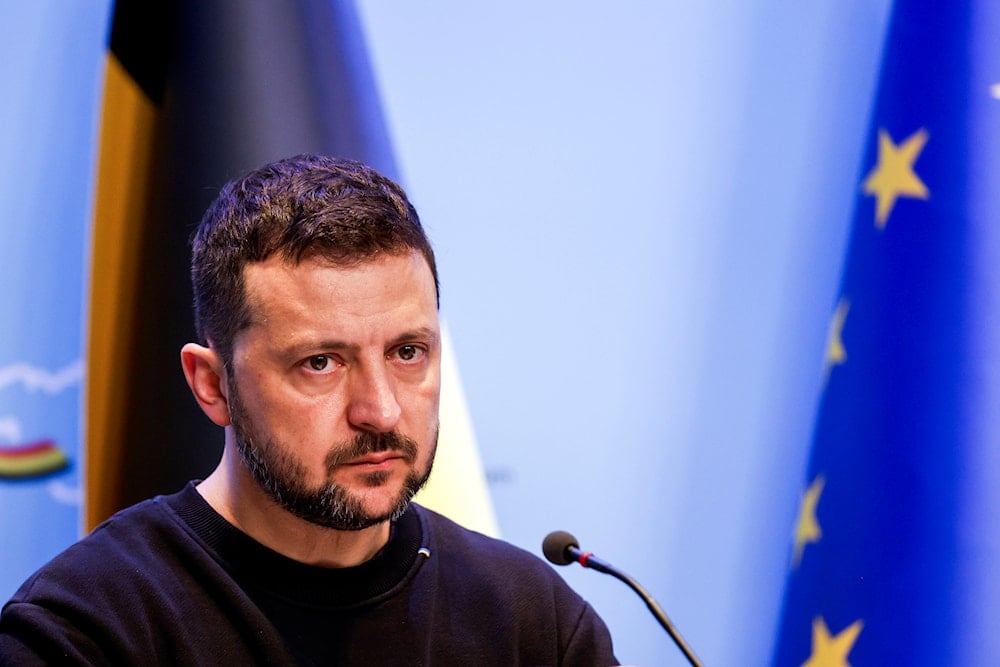Western brands abandon Russia exit plans despite pressure: FT
Natura-owned cosmetics brand Avon, the French industrial gas producer Air Liquide, and the London-based Reckitt consumer group are only a few among those who have decided to stay in Russia since 2022.
-

Ukraine's President Volodymyr Zelensky during a joint news conference at the Prime Minister's office in Brussels, on Tuesday, May 28, 2024. (AP)
Western companies such as Avon Products, Air Liquide, and Reckitt have decided to maintain operations in Russia, in a move that shows they are backtracking from their vows to leave after the war in Ukraine broke out.
Natura-owned cosmetics brand Avon, the French industrial gas producer Air Liquide, and the London-based Reckitt consumer group are only a few among those who have decided to stay in Russia since 2022.
An executive working with Western companies in Russia said, “Many European companies have found themselves really between a rock and a hard place,” adding, “They said they’d leave. They were presented with a choice of buyers that were unacceptable to them.”
According to the Financial Times, citing the Kyiv School of Economics, almost 2,100 multinational corporations stayed in Russia compared with around 1,600 international companies that have either quit the market or diminished operations.
Read next: 95% of Western companies still operating in Russia: Austrian FM
It is worth noting that brands and companies aren't the only entities that maintained connections with Russian businesses.
It's becoming a difficult task for banks in the EU to break ties with Russia over the war in Ukraine, according to a recent report by Bloomberg, which states that the number of employees combined at the five European Union banks with the largest Russia operations has decreased by a mere 3% while earnings have somewhat tripled, due to the hefty interest rates accumulated on their cash stuck in the country.
A concern for the involved banks is that staying in Russia brings the risks of being subject to US sanctions and fines, as confirmed by an anonymous source familiar with the matter.
This comes a few days after the G7 ministers failed to reach a final deal on the seized Russian assets, despite citing some "progress" made.
In their final statement, the ministers cited "making progress" in the talks in ways that are "consistent with international law and our respective legal systems" as part of their attempts to find alternatives as Kiev continues to plead for extra funding.
Back in March, an op-ed by The Economist detailed the economic trajectory of Russia in the two years since the start of the war in Ukraine, stating that despite initial fears of a financial collapse in 2022, the Russian economy has continuously defied pessimistic forecasts.
Instead of facing a catastrophic downturn, the economy experienced a recession of lesser severity and shorter duration than anticipated. Moreover, while inflation emerged as a recent concern, even prompting worries from Putin himself, recent data suggests a potential stabilization in prices.

 3 Min Read
3 Min Read









